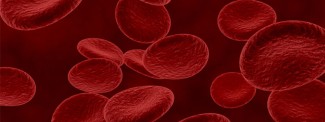A recent study directed by Professor Harald Hampel, researcher at the Institut du Cerveau - ICM, highlights the predictive potential for Alzheimer’s disease of a serological biomarker.
Alzheimer’s disease is the most common neurodegenerative illness and the main cause of dementia in the elderly. It is characterized by the accumulation of amyloid plaques in the brain.
This accumulation stems from a reaction between an “amyloid precursor protein” and enzymes, including β or γ-secretase, and begins several years prior to onset.
Activity of one specific molecule, β -Secretase 1 (BACE1), increases in the brain and cerebrospinal fluid of patient with mild cognitive impairment and probable Alzheimer’s disease cases. The presence of this molecule may be an interesting biomarker for detecting the illness, however research on the molecule is complicated as cerebropsinal liquid analysis required lumbar puncture, a very invasive procedure.
To circumvent this issue, researchers studied detection of BACE1 activity and changes in the blood of patients with mild cognitive impairment and probable Alzheimer’s disease cases.
The study was conducted on 75 patients with probable Alzheimer’s, 96 with mild cognitive impairment and 53 healthy control subjects. All patients received clinical monitoring of symptom evolution over the course of several years.
Results show a significant increase in BACE1 plasmatic activity in patients with mild cognitive impairment (+53%) and in probable Alzheimer’s disease patients (+69%) compared to healthy subjects. Additionally, patients with “mild cognitive impairment” that evolved into “probable Alzheimer’s disease” during clinical monitoring show higher BACE1 activity than patients with stable “mild cognitive impairment” as well as patient’s with Alzheimer’s disease.
Overall, the results support the use of BACE1 plasmatic activity measures as a biomarker in individuals with mild cognitive impairment and probable Alzheimer’s disease. There are many advantages to the test as it is available with a simple blood test, meaning it is quick, easy to implement, cheap and non-invasive. This may represent a promising diagnostic marker for patients at risk of developing Alzheimer’s disease.
Sources
Increased Plasma Beta-Secretase 1 May Predict Conversion to Alzheimer's Disease Dementia in Individuals With Mild Cognitive Impairment. Shen Y, Wang H, Sun Q, Yao H, Keegan AP, Mullan M, Wilson J, Lista S, Leyhe T, Laske C, Rujescu D, Levey A, Wallin A, Blennow K, Li R, Hampel H. Biol Psychiatry. 2017 Mar 27. pii: S0006-3223(17)30098-7. doi: 10.1016/j.biopsych.2017.02.007.
https://www.ncbi.nlm.nih.gov/pubmed/28359566







